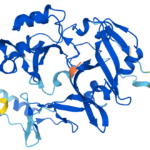UPDATED FUKUSHIMA CIVILIAN PANEL REPORT HIGHLIGHTS LARGELY UNADDRESSED “HUMAN FACTORS” AS IMPORTANT AS EARTHQUAKE AND TSUNAMI IN 2011 REACTOR DISASTER
By John Mecklin | March 6, 2014
Lessons Unlearned? As Third Year of Anniversary Nears, Expanded Version of Fukushima Review Panel Report Published in English in Book Form by the Bulletin of Atomic the Scientists.
CHICAGO AND TOKYO///March 6, 2014///An extensively updated and expanded version of the Independent Investigation Commission on the Fukushima Daiichi Nuclear Accident report published in English by the Bulletin of the Atomic Scientists (BAS) cautions that Japan has not yet fully learned the lessons of the Fukushima reactor disaster, particularly the several ways in which the “human factor” played a major role paving the way for the crisis and worsening its aftermath.
Concluding with the warning that “Fukushima must never be forgotten,” the new book – “The Fukushima Daiichi Nuclear Power Station Disaster: Investigating the Myth and Reality” will be issued on March 11, 2014, the third anniversary of the Fukushima disaster.
In March 2011, the Tohoku earthquake and ensuing tsunami triggered a total loss of electrical power that caused the first Level 7 nuclear accident since Chernobyl, making it among the largest-scale nuclear accidents in history. At the Tokyo Electric Power Company’s (TEPCO) Fukushima Daiichi Nuclear Power Station, reactor cores in units 1, 2, and 3 suffered meltdowns; unit 4’s reactor building was largely destroyed; and the area around the spent fuel pool was damaged, while hydrogen explosions punctuated the disaster as it unfolded. Radioactive elements blanketed the area. Three years later—more than 140,000 people continue to live as refugees from radioactive contamination. On top of this, many hundreds of thousands of people in Japan live with daily anxiety over the unknown effects, both today and long into the future, of radioactive contamination.
Dr. Yoichi Funabashi, chairman, Rebuild Japan Initiative Foundation and report co-author, said: “Three years after March 11, 2011, this crisis has not ended, because of the unsolved issue of the contaminated water and the fact that there has been little change in the human side of the equation: the whole system of Japan’s governance and leadership on nuclear matters. Putting aside the question of the issues with nuclear technology, the human factor that led up to the Fukushima crisis must remain a major concern. We need to learn the Fukushima lessons more seriously in pursuing a new way of decision-making, a new way of crisis management, a new form of governance and leadership. Otherwise, we run the risk of an even more disastrous situation in which Japan would have gained little in terms of wisdom from the Fukushima experience.”
Kennette Benedict, PhD, executive director, Bulletin of the Atomic Scientists, said: “We are very pleased to release in English the expanded and updated version of the independent civilian review panel report on the Fukushima disaster. The book we are publishing on March 11, 2104 reveals the truth behind the tragic saga of the multiple catastrophic accidents at the Fukushima Daiichi Nuclear Power Station. It serves as a valuable and essential historical reference, which will help to inform and guide future nuclear safety and policy in Japan, the United States, and internationally.”
The updated and expanded civilian review committee’s report highlights several ways in which the human factor played as significant a role in the Fukushima disaster as the earthquake and subsequent tsunami:
- Lack of unified and independent regulatory controls. “Perhaps the biggest takeaway from the Fukushima Nuclear Power Station disaster concerns the nonexistence of an effectivenuclear regulatory organization in Japan—one that is independent from nuclear enterprises, politics, or academia; in short, independent from any community within the ‘nuclear power village.’ To work towards this objective post-Fukushima, the Japanese government established the Nuclear Regulation Authority—an independent outfit headed by Chairman Shunichi Tanaka, former president of the Atomic Energy Society of Japan and former director of the Japan Atomic Energy Agency (previously known as the Tokai Research and Development Center of the Japan Atomic Energy Research Institute)—as well as the Nuclear Regulation Agency as its secretariat, and the two regulatory outfits debuted in September 2012. Since then, however, the Nuclear Regulation Authority has been caught in constant crossfire between pro and anti-nuclear groups. And the pressure has not been mild … a national consensus remained unreached on both the nation’s regulation of nuclear power stations and its nuclear energy policy issues.
- Faulty management oversight. “In March 2013, TEPCO’s Nuclear Reform Monitoring Committee published a report in which it admitted—for the first time—that the accident was a ‘human-generated disaster.’ This is, in fact, made obvious in the following pages, as our commission illuminates the clear lack of facilitation and preparedness for a severe incident at a nuclear power station in Japan. Yet the lessons to be learned from Fukushima are not only safety issues, but security issues as well. That said, it remains to be seen whether TEPCO as well as NRA will work to deepen security at its plants.”
- False sense of infallible technology. “The myth of absolute safety blocked implementation of the so-called ‘backfit approach,’ in which new scientific knowledge and the latest technological developments are incorporated into existing nuclear power generation systems in order to improve security. In the case of Fukushima, Japan’s power companies and regulatory bodies feared that any safety improvements would provoke criticism that the existing safety provisions and regulations were inadequate— and then such criticisms would have to be addressed. In addition, they feared that the public would demand that nuclear reactors be shut down until all such safety improvements had been fully implemented.”
The Independent Investigation Commission on the Fukushima Daiichi Nuclear Accident, a civilian-led group, consisted of a working group of more than 30 people, including natural scientists and engineers, social scientists and researchers, business people, lawyers, and journalists, who researched this crisis involving multiple simultaneous dangers. They conducted over 300 investigative interviews to collect testimony from relevant individuals. The responsibility of this committee was to act as an external ombudsman, summarizing its conclusions in the form of an original report, published in Japanese in February 2012. That report was substantially rewritten and revised for this English-language book edition.The English edition includes the reviews by 3 world-renowned experts, Professor Frank von Hippel (Princeton University), Dr. Jessica Mathews (President of the Carnegie Endowment for International Peace), and Professor Paul t’Hart (Utrecht University School of Governance).
ABOUT THE BULLETIN
The Bulletin of the Atomic Scientists informs the public about threats to the survival and development of humanity from nuclear weapons, climate change, and emerging technologies in the life sciences. Through an award-winning magazine, our online presence, and the Doomsday Clock, we reach policy leaders and audiences around the world with information and analysis about efforts to address the dangers and prevent catastrophe. With fellowships for students and awards to young journalists, we help educate the next generation. For more information, go to www.thebulletin.org.
MEDIA CONTACT: Patrick Mitchell, (703) 276-3266 or [email protected].
EDITOR’S NOTE: Copies of “The Fukushima Daiichi Nuclear Power Station Disaster: Investigating the Myth and Reality” published in collaboration with Routledge/Earthscan will be made available to book reviewers. Streaming audio of the news event proceedings is available after the telenews event concludes on March 6, 2014 here: http://www.hastingsgroupmedia.com/BAS/Fukushimanewsevent030614.mp3 . A high-resolution file of the book cover is available upon request.
Together, we make the world safer.
The Bulletin elevates expert voices above the noise. But as an independent nonprofit organization, our operations depend on the support of readers like you. Help us continue to deliver quality journalism that holds leaders accountable. Your support of our work at any level is important. In return, we promise our coverage will be understandable, influential, vigilant, solution-oriented, and fair-minded. Together we can make a difference.














